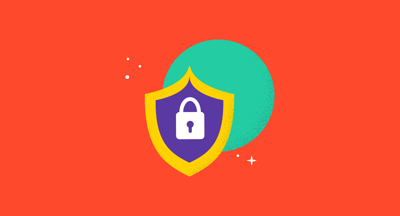March 10, 2021
 by Sagar Joshi / March 10, 2021
by Sagar Joshi / March 10, 2021

Whether you’re a newcomer or a seasoned IT professional, the path to earning cybersecurity certifications is trickier than it appears.
Why? Well, in the majority of cases, people don’t know which certifications they should take or which certification can provide them the career growth that they are looking to achieve. Sometimes, people end up settling for less instead of achieving their true potential in the career because moving ahead is just too confusing.
That’s a bit unsettling to hear, but it happens. This guide on cybersecurity certifications will walk you through some prevalent cybersecurity certifications in the industry, why people choose to do them, and how they do it.
The popular cybersecurity certifications you can do to grow in your career are as follows:
Without a doubt, the best cybersecurity certification is clearly subjective. So instead of searching for the “best” certifications, look for what’s the best fit for you.
For professionals aspiring to earn cybersecurity certifications, starting with CompTIA can be a wise choice as employers see most of them as a baseline, and they are relatively easier to do.
The choice of certification depends on the area of cybersecurity you want to dive into. If cloud computing is something you want to pursue, certifications from Azure, Google Cloud, and AWS will be more beneficial.
Let’s take a deep dive into some popular cybersecurity certifications and understand what would be the perfect fit for you.
CompTIA Security+ is considered as the baseline when you are pursuing a career in IT security. The certification tests your knowledge and skills against what the industry expects from a cybersecurity professional.
CompTIA Security+ certification evaluates your skills in the following areas:
Aspirants gain multiple benefits from earning a CompTIA Security+ certification. It allows them to test their skills with the standard required in the security domain.
Employment opportunity is the first thing a professional is looking for while pursuing the CompTIA Security+ certification. It serves as a screening benchmark to select candidates for the interview.
Before you’ve met the employer, the certification helps you establish your fit for the cybersecurity job role through your resume and enables you to compete for the interview.
Aspirants who get the CompTIA Security+ aim for the following job roles:
As per the U.S. Department of Defense (DoD) 8570 requirements, the federal guidelines expect professionals pursuing an IT or cybersecurity career within government institutions to have certifications in prominent areas of security. CompTIA security+ covers those areas, enabling you to become a suitable candidate and leverage your skills to benefit the nation.
Not only does the U.S. government mandate the requirement of certification, but several other job roles also expect the same from a candidate.
The certification validates your skillset and ensures that it’s in line with the industry standards. It allows employers to establish trust in your abilities in the security landscape and makes them believe that you have what it takes to steer your career in cybersecurity.
CompTIA Security+ certified professionals are well-equipped to grasp IT environment details at a granular scale, identify issues and opportunities, and add value quickly compared to non-certified professionals.
Same as any other certifications course, CompTIA security+ tests your knowledge with multiple-choice questions and performance-based questions. When you pass the test, you’ll be awarded the CompTIA Security+ certification.
The preparation strategy may differ from person to person. This preparation guide will help you craft your strategy and stay organized in the process.
Let’s dive into the details of preparing for CompTIA Security+ certification.
Before creating a preparation strategy, it’s important to understand the areas you’ll be tested in.
CompTIA Security+ certification exam will test your skills in the following areas:
Download the free sample of the CompTIA Security+ study guide to get a granular overview of the various topics covered under the modules mentioned above.
Now, you know the areas where you need to focus on while preparing for the examination. The next step is to understand the exam pattern.
The next step is to get to know how you’ll prove your skills in the CompTIA Security+ certification exam.
The certification exam will test your skills through a maximum of 90 questions in a time span of 90 minutes. The questions will be multiple choice and performance-based. You’d need a score of at least 750 to pass the exam.
Performance-based questions test a candidate’s abilities in a simulated environment. PBQs are often an approximation of a virtual environment. It’s not a live lab, so there may be restrictions in the system’s functionalities.
CompTIA recommends you have a network+ certification and two or more years of experience in IT administration, focusing on security.
Based on your experience and expertise in the field, identify the gaps you need to bridge in your learnings. Some take a few weeks to brush up their skills, while others may take months to complete the preparation. Whatever the case, give yourself ample time to study and gain the knowledge you need to test well.
Once you’re sure that you know what it takes to qualify for the exam, visit the CompTIA website to select the pricing that best suits your needs, and apply for the exam online or at secure testing centers.
The EC-Council offers the CEH certification to those who display profound knowledge and skills in ethical hacking. It provides a benchmark to a white-hat hacker’s abilities in their areas of expertise and enables organizations to avoid ever-evolving threats by leveraging their skills.
Ethical hacking, also known as penetration testing, imitates a black-hat hacker’s tactics to gain insights into security issues that need to be rectified. The CEH certification validates an ethical hacker’s knowledge and guarantees that it complements the industry standard.
Many organizations and government institutions have CEH as a prerequisite for a job, making it an indispensable asset in the career of a security professional.
Let’s dive into the nitty-gritty of CEH to understand why you’d need it and the best way to earn the CEH certification.
Simply put, to stop an attacker from penetrating your assets, you need to think like one. CEH brings out the black-hat hacker in you and enables you to use that mentality against malicious attackers.
A CEH certification empowers professionals to prove that they have robust theoretical knowledge armored with strong practical skills and experience needed to strengthen an organization’s IT framework. It introduces applicants to the latest tools and inspires them to leverage modern techniques while finding vulnerabilities and combating cyber attacks.
It equips you with relevant expertise to find security weaknesses that lie beyond the scope of vulnerability scanners. Even though the first step in ethical hacking is vulnerability scanning, it doesn’t limit to what the software identifies as vulnerabilities and ways they can be exploited. Attackers can exploit a vulnerability in many ways, and CEH makes you fit to get to the bottom of those.
CEH certification is popular among security officers or professionals. The U.S. DoD has made it a standard requirement for Computer Network Defense Service Provider (CDN-SP) in directive 8570.
To become a CEH, you need to have a minimum of two years of experience in the information security domain. You can choose to attend an official EC-Council training program at an accredited training center or an approved academic institution.
Candidates can also go forth with the eligibility application process. It costs a non-refundable fee of $100. If the application is approved, within three months, you’ll have to purchase the exam voucher.
Processing of the application may take time between five to 10 working days after the verifiers of the application responds to the EC council’s request for information. You’ll then receive an eligibility code and voucher code.
You can use it to register and schedule a test at Pearson VUE or EC-Council test centers.
Before you dive into the exam, it is essential to know what you have to study. These certifications cost a substantial amount of money, and you shouldn’t take them for granted at any cost. Plan ahead and study religiously to qualify for the exam.
When studying for the exam, CEH aspirants should prepare themselves for the following topics:
You can check the CEH exam blueprint to understand the weightage of each section and plan your preparation strategy accordingly.
CEH certification will test your knowledge based on 125 multiple-choice questions. You’ll have to answer those questions in four hours. There is no negative marking, so you can take calculated guesses without worrying too much about the consequences.
CEH is an advanced-level certification. Make sure you have prepared yourself well before taking the exam. You will be evaluated based on your knowledge of tools, scenarios, commands, and more.
The passing score of the CEH exam is not set in stone. It may vary based on sets of questions and difficulty levels. EC-Council creates the sets of questions so that it doesn’t only have the academic rigor, but encompasses real-world applications. Overall, the passing score will be somewhere between 60% to 85%.
You can visit the EC-Council official website to gain more insights into the CEH exam and how you can apply.
The CISSP certification validates that you have what it takes to create, execute, and manage a good cybersecurity program. Ideally, experienced security professionals aspire to prove their abilities in a wide array of security practices and principles.
The International Information Systems Security Certification Consortium (ISC²) is the official regulatory authority for providing the CISSP credential while ensuring that the aspirant has a standardized knowledge in computer security.
Let’s see what it takes to earn the CISSP credential.
Simply put, professionals pursue CISSP certifications to make a better career in cybersecurity. The credential demonstrates that you’re on top of your cybersecurity game and you’re up to date with standardized security practices and principles.
The benefits that CISSP credentials add to your career are many, but to name a few prominent ones, you’ll have outstanding advantages in realizing your true potential in terms of your job and salary. Let’s not shy away and accept that a good job and a nice paycheck is what every professional expects, not just in cybersecurity, but in all areas of employment. CISSP certifications help you get closer to that expectation.
Take a look at the various benefits CISSP certification adds to your career:
There are several other benefits; the above list tells the ones which have a maximum impact. Whether you aspire to become a network security specialist, senior security engineer, information security manager, or chief security officer, you can benefit from the CISSP certification for better and faster advancement of your career in cybersecurity.
To earn a CISSP certification, you need a minimum of five years of full-time work experience as a security analyst in two or more domains covered under the CISSP certification.
The domains of CISSP are as follows:
You’ve provisions for experience waivers based on a relevant college degree and other certifications approved by ISC².
To prepare for CISSP, consider gaining a profound understanding of different CISSP certification exam domains mentioned above. Make yourself familiar with addressing issues such as architecture and access control for protecting information systems and assets.
Learn how to assess the current operations and policies in the incident response plan of your organization. You should be able to explain the importance of disaster recovery policies and exhibit effective strategies to implement. CISSP tests your skills in demonstrating the value of such policies to the key stakeholders in the project/organization.
Comparing and contrasting different cryptography protocols and making recommendations is also a skill that is put to test. The end goal of CISSP credential holders is to create system policies, procedures, and standards to safeguard information assets from data breaches.
On the technical side of things, you should be able to prove your proficiency in network architecture and design, tool usage, collection of digital forensics and physical security systems, and how they add value to a cybersecurity program.
To obtain a CISSP certification, your skills will be tested based on a 6-hour exam where you’ll answer 250 questions from different domains of CISSP. After passing the exam, you’ll need to have an endorsement subscribing to the ISC² Code of Ethics. You’ll also need an endorsement from an ISC² professional who can verify your experience requirements.
It’s advisable to participate in seminars and events to network with other professionals and get an endorsement from them. The certification does need a maintenance fee of $85 at the end of each certification year and recommends you to take a test every three years to prove your skills are aligned with the updated certification standards.
Visit the official website for the CISSP certification to get more details on it and its renewal.
CISA is a globally recognized certification for validating IT auditor’s skills and knowledge in detecting vulnerabilities and establishing IT controls in an organization’s environment. It ensures that an auditor’s skills are in line with the industry standards.
IT auditors, audit managers, security consultants, and professionals seek the CISA credential to add a proficient benchmark of their capabilities in front of hiring managers. The certification provides a competitive advantage to the job seeker as recruiters ideally search for candidates with a CISA certification.
Apart from giving you a competitive edge over other candidates in a job search, the benefits of having “certified” with your information security auditor credential add up to provide a more substantial advantage.
It makes you more confident in your field, which might not be achieved solely with your academic degree. You can rely on your skills as an IT auditor without oscillating between various information sources to validate your decisions. Most importantly, it gives organizations a logical reason to trust your expertise in IT auditing and maintain the security of their information systems.
Moreover, the CISA designation is accredited by the American National Standards Institute (ANSI), ensuring a level of excellence in the ISACA’s certification program.
Keeping an eye out on a certified information security auditor’s responsibilities, the certification exam will test your knowledge in several areas.
The specific areas to focus on while preparing for the CISA exam are as follows:
The CISA exam is organized and split into five different sections. You have to be thorough with these sections to earn good marks when you take the exam.
The five sections to focus on to pass a CISA exam, along with their weighted percentages, are:
You can plan your study to gain a concrete understanding of the above five sections. Visit the official website of ISACA to get more information on the CISA certification exam.
You’ll have to score more than 450 (on a scale of 200 to 800) to pass the CISA exam and prove that your skills comply with the accepted industry standards. Make use of the preparation material on the ISACA website as well as review courses. It’s also advisable to take as many practice tests as possible before diving into the exam.
You’ll need a professional work experience of five years in information systems auditing, control, or security. But there are substitutions that can lower the work experience requirements.
The next step is to agree to the ISACA code of professional ethics and adhere to the continuing professional education (CPE) program. Maintain a minimum of 20 CPE hours per year and the membership fees to keep the certification valid.
Earning a certification is considered a wise choice in the security landscape. The more certifications you take, the better you’ll be able to exemplify your knowledge and skills in combating threats and securing assets.
Steer your career ahead with certifications to reach your true potential, and let the numbers on your paycheck rise to your expectations.
Start your learning journey today by discovering more about cyber attacks and how they pose a threat to your systems.
Sagar Joshi is a former content marketing specialist at G2 in India. He is an engineer with a keen interest in data analytics and cybersecurity. He writes about topics related to them. You can find him reading books, learning a new language, or playing pool in his free time.
Securing a job as an ethical hacker is a tricky process.
 by Sagar Joshi
by Sagar Joshi
The cybersecurity industry is in the midst of a crisis, a crisis that demands immediate...
 by Dr. Chase Cunningham
by Dr. Chase Cunningham
With any project, big or small, someone has to take the lead.
 by Alexa Drake
by Alexa Drake
Securing a job as an ethical hacker is a tricky process.
 by Sagar Joshi
by Sagar Joshi
The cybersecurity industry is in the midst of a crisis, a crisis that demands immediate...
 by Dr. Chase Cunningham
by Dr. Chase Cunningham


